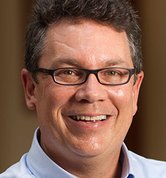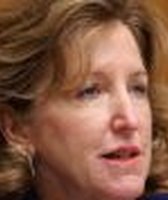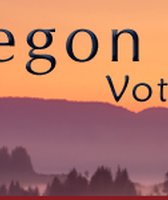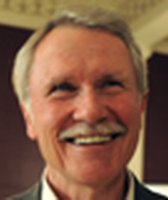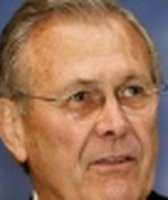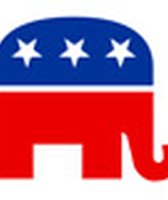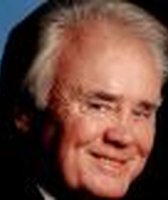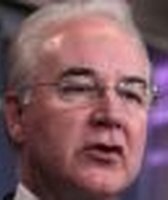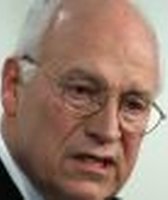Stand up for the facts!
Our only agenda is to publish the truth so you can be an informed participant in democracy.
We need your help.
I would like to contribute
He said he'd pursue it, but opted out
- Barack Obama, fall 2007
"We've made the decision not to participate in the public financing system for the general election."
- Barack Obama, June 19, 2008
Sen. Barack Obama's decision to opt out of the public financing system marked a milestone in modern presidential politics: the first time a major nominee has declined public financing since the system was created after Watergate. Obama's announcement on June 19, 2008, prompted swift criticism from Sen. John McCain's campaign that Obama had flip-flopped.
"The true test of a candidate for president is whether he will stand on principle and keep his word to the American people," said McCain communications director Jill Hazelbaker. "Barack Obama has failed that test today, and his reversal of his promise to participate in the public finance system undermines his call for a new type of politics." The group Let Freedom Ring made a similar charge in July 2008 with a TV ad.
When we talk about public financing, we're talking about candidates agreeing to skip private fundraising and instead run their campaigns using a pot of public money that comes from taxpayers who direct $3 to the fund on their tax returns. The upside is that candidates don't have to spend time seeking contributions, but the downside is that their spending is limited to an amount set by the Federal Election Commission. This year's general election limit is $84.1-million per candidate, but the spending period is limited to the two months between the nominating conventions in late August and early September, and the Nov. 4 election.
To explore whether Obama made a full flip-flop, let's go back a year to 2007 shortly before he announced his candidacy.
On Feb. 1, 2007, Obama requested an opinion of the FEC on whether he could privately raise money for the general election but reserve the right to use public financing if he returned what he had raised. A month later, the FEC issued an advisory opinion that said it was okay as long as his campaign kept the primary election contributions and the general election contributions separate.
The day of the FEC decision, McCain's campaign said he would commit to public financing. "Should John McCain win the Republican nomination, we will agree to accept public financing in the general election, if the Democratic nominee agrees to do the same," Terry Nelson, McCain's campaign manager, told the New York Times.
Obama campaign spokesman Bill Burton responded by saying: "If Senator Obama is the nominee, he will aggressively pursue an agreement with the Republican nominee to preserve a publicly financed general election."
In the fall of 2007, Obama elaborated on his position when he answered a questionnaire sent by the Midwest Democracy Network, which asked the candidates if they would participate in public financing." "Yes," Obama said in his response. "In February 2007, I proposed a novel way to preserve the strength of the public financing system in the 2008 election. My plan requires both major party candidates to agree on a fundraising truce, return excess money from donors, and stay within the public financing system for the general election. ... The Federal Election Commission ruled the proposal legal, and Sen. John McCain has already pledged to accept this fundraising pledge. If I am the Democratic nominee, I will aggressively pursue an agreement with the Republican nominee to preserve a publicly financed general election."
The message seemed clear: Obama and McCain wanted a publicly funded general election. But then both campaigns saw tactical advantages to getting out of the public financing system.
McCain filed a letter with the Federal Election Commission on Feb. 6, 2008, saying he wanted to withdraw from public funding for the primaries. McCain's private fundraising had improved after his early primary victories, and his strategists were concerned that they would be hamstrung by spending limits if they stayed in the public system.
But that effort stalled because of vacancies on the FEC. Chairman David M. Mason sent a letter to McCain on Feb. 19, 2008, saying he needs four members seated to make a ruling.
Obama repeated his commitment in a Feb. 26, 2008, debate in Cleveland, Ohio, when moderators pushed him to explain why voters shouldn't consider his position on public financing to have changed.
"What I've said is, at the point where I'm the nominee, at the point where it's appropriate, I will sit down with John McCain and make sure that we have a system that works for everybody."
In the meantime, Obama's campaign had benefited from an unprecedented tidal wave of private contributions, especially from donors who gave less than $200. The small contributions not only fueled the campaign in the early primaries, but the donors could be tapped again (and again) before they hit the $2,300 limit for individuals.
As they considered their plans for the general election, a factor for both campaigns was the money spent by independent groups known as 527s, named after the section of the tax code that governs them. Groups on both sides are expected to spend tens of millions of dollars, but the spending could become lopsided to the benefit of one candidate, either because favorable groups buy lots of ads touting him or they buy lots of ads attacking his opponent.
In either case, the candidate on the losing side of 527 spending would be at a significant disadvantage if he was using public financing for his campaign and had to adhere to spending limits.
So as the money flowed in, Obama campaign strategists made a calculation: They decided they could raise so much from private contributions that they were better off avoiding the public system.
"It's not an easy decision, and especially because I support a robust system of public financing of elections," Obama said in a video to supporters. "But the public financing of presidential elections as it exists today is broken, and we face opponents who've become masters at gaming this broken system." He said McCain's campaign and the Republican National Committee are largely bankrolled by "Washington lobbyists and special interest PACs. And we've already seen that (McCain is) not going to stop the smears and attacks from his allies running so-called 527 groups, who will spend millions and millions of dollars in unlimited donations."
Asked whether they pursued an agreement with McCain, the Obama campaign pointed us to a news account that said Bob Bauer, an attorney for Obama, met with McCain lawyers to discuss how both campaigns could operate in the public financing system.
But that account was sketchy and didn't sound to us like the "aggressive pursuit" that Obama had promised. The fact is that Obama said he would pursue public financing, but decided it wasn't in the campaign's tactical interest. That might have been a tactical decision, or even a wise one, but we see it as a Full Flop.
Our Sources
CQ Transcripts Wire, Sen. McCain holds a media availability, Columbus, Ohio, Feb. 20, 2008
Federal Election Commission, Advisory Opinion Request: General Election Funding, letter filed on behalf of Sen. Barack Obama and the Obama Exploratory Committee, Feb. 1, 2007
Federal Election Commission, Draft advisory opinion, on request on behalf of Sen. Barack Obama and the Obama Exploratory Committee, Feb. 22, 2007
Federal Election Commission, Certification of FEC vote, March 1, 2007
Federal Election Commission, FEC responds to Obama campaign, advisory opinion on request, March, 1, 2007
Associated Press, Federal regulators rule candidates can return donations for general election, by Jim Kuhnhenn, March 1, 2007
New York Times, McCain and Obama in Deal on Public Financing, by David D. Kirkpatrick, March 2, 2007
Midwest Democracy Network, Presidential candidate questionnaire, released Nov. 27, 2007
New York Times, McCain and Obama Skirmish on Financing, by Elisabeth Bumiller, Feb. 15, 2008
League of Women Voters, Letter to Sen. Barack Obama, Feb. 15, 2008
USA Today, Opposing view: Both sides must agree, by Barack Obama, Feb. 20, 2008
Associated Press, McCain Knocks Obama Over Public Financing, Feb. 20, 2008
Federal Election Commission, Re: John McCain 2008, Inc., letter from John McCain to FEC commissioners, Feb. 6, 2008
Federal Election Commission, Response to Sen. McCain from FEC chairman David M. Mason, Feb. 19, 2008
Associated Press, FEC chair: McCain can't drop out of public financing system, Feb. 21, 2008
New York Times, Democratic debate transcript, Cleveland, Ohio, Feb. 26, 2008
Federal Election Commission, Public funding of presidential elections, published in August 1996 (updated February 2008)
Opensecrets.org, Race for the White House, Barack Obama, last report Jan. 31, 2008
Interview with Tom Vietor, Obama campaign spokesman, March 3, 2008
Interview with Crystal Benton, McCain campaign spokesman, March 3, 2008
Interview with Stephen Weissman, associate director for policy at the Campaign Finance Institute, March 3, 2008
Interview with Kenneth A. Gross, campaign finance lawyer, former associate general counsel of the Federal Election Commission
MSNBC, Obama opts out of public funding, June 19, 2008
Browse the Truth-O-Meter
More by Bill Adair
He said he'd pursue it, but opted out
Support independent fact-checking.
Become a member!
In a world of wild talk and fake news, help us stand up for the facts.




